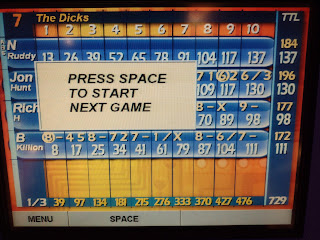In "Killing Commendatore" Haruki Murakami takes his standard storytelling world full of oddities and abstractions that his characters accept with limited protest, and this time uses it to explore the act of artistic creation. Much like the way characters in Murakami's novels have vastly different experiences with these oddities, though, different people seem to get very different results from this work.
The protagonist of "Killing Commendatore" (unnamed, in typical Murakami fashion) is a recently divorced portrait painter. Murakami is in his comfort zone here, writing yet another male protagonist recently severed from the woman that seemed to keep his life grounded and now drifting through an increasingly dream-like world. These criticisms of Murakami (that he writes flat, male protagonists and the women in his stories are little more than plot devices to either spur the male character along or serve as a temporary object of desire) contain degrees of truth, but they tend to inject a goal into his writing that Murakami is never aiming for. He does write flat male characters, namely because he is writing for a flat, male audience from his flat, male perspective. Murakami's worlds have hidden undersides and fantastic, transformative abilities, but the point is that these are still somewhat mundane revelations. It's somewhat fantastic to find out that your backyard has been a mystical prison for an Idea that can become corporeal, but you still have to get up and work in the morning, you know?

So, in "Killing Commendatore" not only does Murakami tackle the criticism of the depth of his characters by leaning into that criticism even more so, he attacks the very idea of novels needing to be About Things in a hilariously literal way. The protagonist is dealing with his life being disrupted in a decently healthy way, only to have his life further upended by an Idea that has become physical and can visit him. What exactly causes this to happen is left deliberately vague - a choice that works well in a story where every details is meticulously documented - but it has some connection with the protagonist discovering a new piece of art and becoming entranced with it. Murakami's deadly serious tone telling us the dangers of looking for too much meaning in art, in a somewhat silly and playful way. This Idea isn't the only oddity the protagonist encounters, as he later has a hilarious conversation with a Metaphor, leading to the climax where he must avoid the deadly Double Metaphor(s). All of this is presented matter-of-factly, of course, and to the protagonist is an odd experience but perhaps no odder than other, "realistic" life events.

At about 700 pages, Murakami has plenty of space to muse on ideas (lower-case) about time, legacy, secrets and how these define our life and relationships. Oh, and also about a 13-year old girl concerned about her breast size, in another example of Murakami seemingly considering the criticisms of his work and leaning further in to them. In that regard, parts of "Killing Commendatore" are very combative. Murakami staking out an identity agreed upon by himself and his critics, and saying "your move." In another way, this is a quiet masterpiece by Murakami. 700 pages that drift by without the messiness of Idea or Metaphor to constrain it - to grab hold of the narrative and twist it into a direction it does not naturally want to follow. Ultimately, this is a very touching novel about how secrets and oddities define a life, and is worth reading to think about what we all leave unsaid.
























